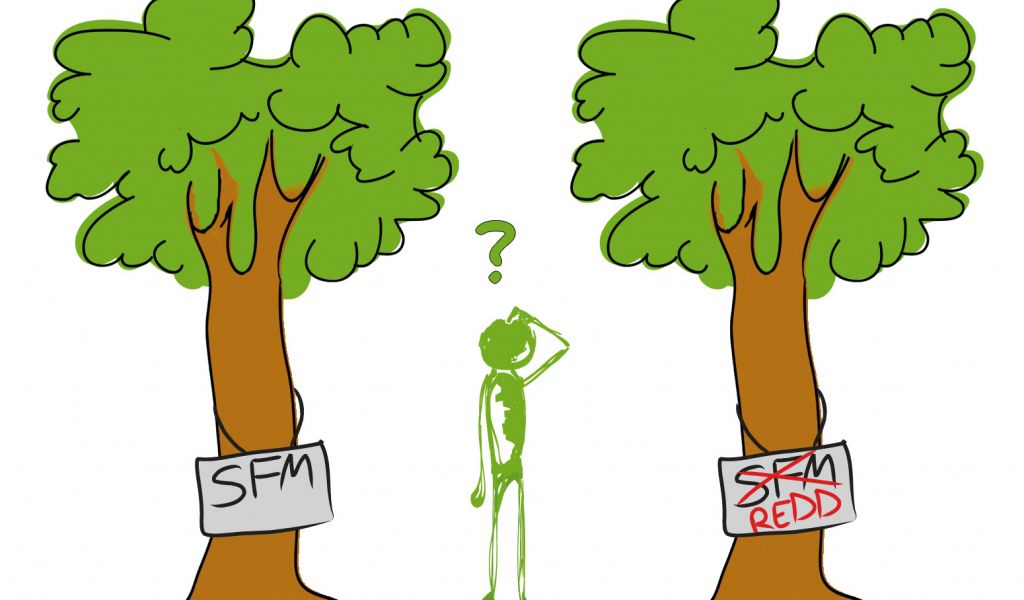In with Old, In with the New?

Certainly, many things about REDD are new; challenges, technicalities and opportunities alike, all of which need to be well-understood. But what about the not-so-new things that we still don't quite understand? Or that we haven't quite mastered the art of applying in practice, but that are necessary for an effective REDD?
If you are thinking of 'good governance,' you most certainly are not alone. Leaving aside the infamously open-to-interpretation nature of what good governance means, this is one condition for effective REDD on which it seems everyone can agree. Of course, far less clear is what international climate change instruments and national frameworks can do to push governance in a more positive direction.
Might we look to the last 20+ years of experience promoting sustainable forest management and fighting illegal logging? These experiences can surely offer useful guidance and possibly even processes, institutions and tools that can improve the likelihood of just and equitable REDD.
Of course, I am not the first person to wonder about this. So why does it seem that REDD pilot projects are being designed and implemented, national programs developed and international negotiations conducted in apparent isolation from decades of work and ongoing initiatives to address deforestation and poor forest management in the region?
The World Resources Institute (WRI) is one of the organizations taking leadearship in climate change through its framework for assessing and improving governance in the forest sector and working with specific REDD projects to determine whether/how the standards ensure that a given forest is meeting the community's needs.
FLEGT & REDD
Participation
Perhaps the best example of this rather senseless situation is the case of Ghana, as described by Kate Dooley of FERN in a side event hosted by the Rainforest Action Network and the Environmental Investigation Agency earlier this week. Of all timber producing countries involved in Voluntary Partnership Agreement (VPA) processes with the European Union, Ghana is the most advanced. The process included multi-stakeholder consultations - a critical part of a VPA - and it is generally felt that these consultations functioned effectively and were significantly robust. And yet, there has been no sign incorporating the considerable experiences and observations from FLEG/T in Ghana's national REDD program. The general conclusion of FERN's work comparing FLEG/T and REDD processes in countries where both are underway is that REDD processes are developing alongside the FLEGT national architecture with little in the way of information sharing and collaboration.
Consumer Due Diligence
On the other, less discussed side of the REDD rights debate is the issue of rights of local communities and indigenous as affected by the operations of carbon credit buyers, and the degree to which these are incorporated in international instruments and national frameworks. This is a key concern of the Durban Group for Climate Justice and one of the primary reasons for the Group's opposition to REDD. While it is not yet clear what role the market will have in REDD, there is general consensus around the use of a phased approach, that will likely rely on private sector funding. As one of the participants working with Flora & Fauna International in Liberia described, currently "the burden [of ensuring safeguards] falls to the producer, with no conditions in place to ensure that those benefiting from carbon credits have some responsibility," along with carbon sellers. The Lacey Act's or the EU's due diligence policy developed at the national level may offer a models to consider in that might be adapted to secure safeguards commitments.
Certification and REDD
As we begin to develop or apply standards and principles to REDD projects to assure buyers that safeguards are being adhered to, it is worthwhile reflecting on years of experience with certifying forest products. These experiences, such as with the FSC system, have taught implementors a lot about the limitations of small-scale producers. This knowledge needs to be applied to shed light on how markets might be expected to work and what practical measures can be built into a certification system to better enable communities to access them with the products they have to sell.
Much has been learned over decades of work on sustainable forest management and timber trade, and we continue to develop a better understanding of what is needed to address key challenges. REDD agreements, programs and projects are well placed to benefit from this learning.
REDD is nowhere near a panacea, but its current prominence seems to have injected some energy (and funding) into efforts to improve forest governance across the globe. This must be used strategically to build on the years of work in this area that has already been done.

